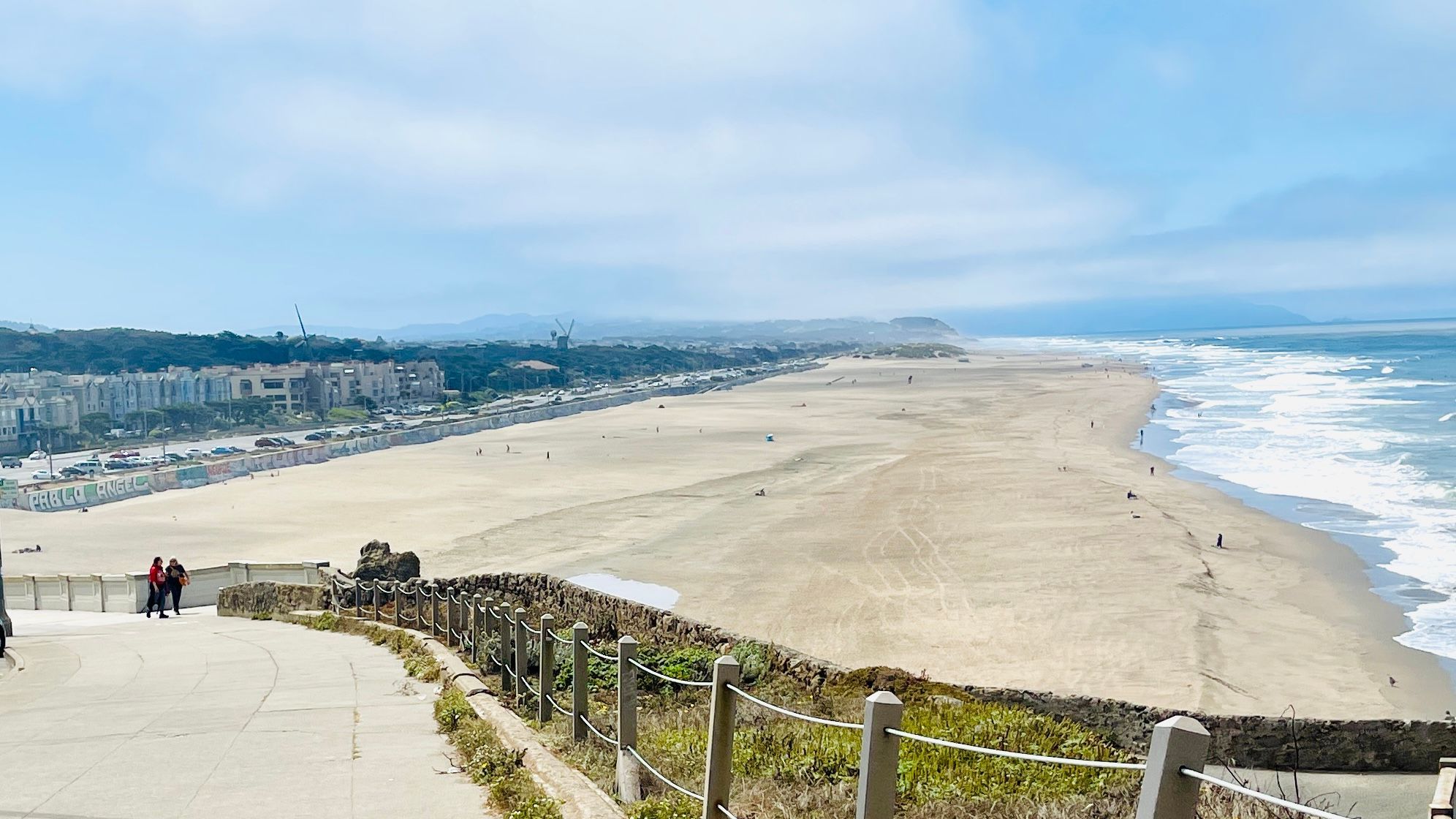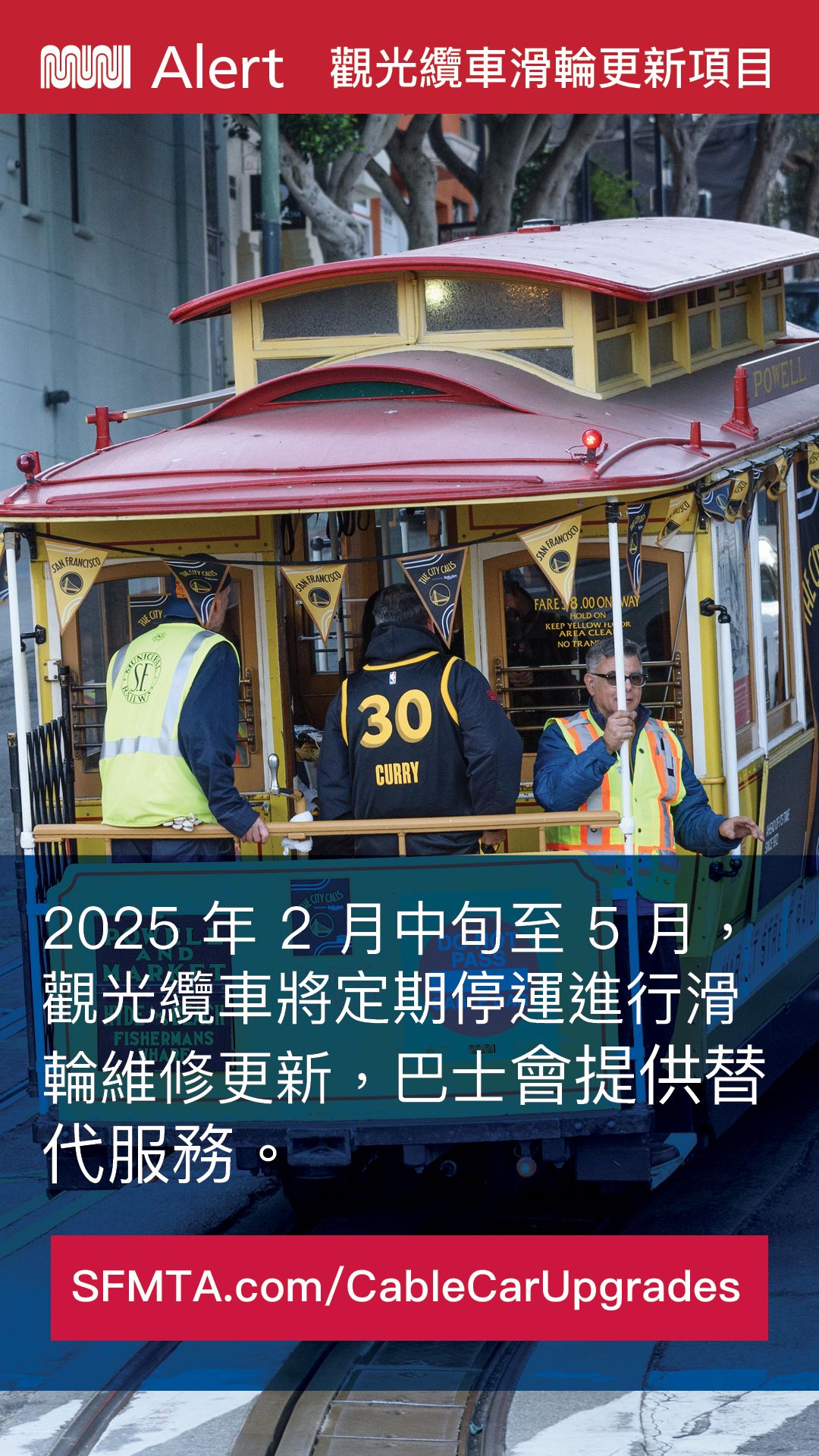Opinion: Yes on Prop. K for reimagining San Francisco’s Great Highway for families and wellness

One Sunday, my husband and I took our 10-month-old son for a walk. We debated
between visiting a regular playground or the Great Highway Park, which I preferred for its weekend-only access and natural scenery. Although I won, our car ride became heated and tense from our argument.
When we finally arrived at the Great Highway, my mind was still racing, and my heartbeat was fast from a flood of emotions.
But as we began to walk, something shifted. The noise of life—my own worries and the commotion of others—faded. I was surrounded by the peaceful energy of the ocean, the sand dunes, and the slow rhythm of walkers, cyclists, and families enjoying the space. Within moments, my stress melted away.
That’s the kind of magic San Francisco needs more of: places that allow us to feel grounded and restored.
In a city where mental health is an increasing concern, it’s no surprise that our environment can play a critical role in helping people find peace. The pandemic drove that point home; confining many to small, indoor spaces, heightening anxiety, and limiting access to green, open spaces. But San Francisco has always been blessed with an abundance of parks and waterfront areas.
During the pandemic, while schools and businesses shuttered, spaces like the Great Highway offered a sanctuary, serving as a park for those seeking solace in nature.
The COVID pandemic forced many of us to reassess our priorities. In this period of reflection, we’ve seen how crucial outdoor spaces are maintaining a healthy, sustainable, and joyful life.
As San Franciscans, we now face a choice: do we want a city that values mental health, quality of life and community, or one that prioritizes traffic convenience over well-being?
Keeping the Great Highway as it is—a stretch of asphalt, designed for cars—will only preserve more of the same. It perpetuates an identity that prioritizes transit over people. Furthermore, we know the status quo won’t last forever as we see the effects of coastal erosion on the southern extension.
In contrast, transforming it into a two-mile-long Ocean Beach park would honor the city's legacy as a beacon for outdoor living and mental well-being. In many ways, this decision mirrors the values that we, as individuals and as a community, hold dear.
San Francisco’s use of its public spaces has always been a reflection of its identity. Just as you can learn a lot about a person by observing their home, you can understand a city by the way it treats its public spaces. Will we choose to build more highways, or will we invest in parks that nurture families and create spaces for everyone to breathe and reconnect?
Ten years ago, I lived the fast-paced life in New York, working long hours as a reporter. San Francisco was where people from my East Coast circle moved after they had their fill of the New York hustle. We used to joke that San Francisco had no good nightclubs and that weekend activities revolved around hiking and family gatherings. It was known as a place with more balance, where people went to settle and raise families.
A decade later, after living in New York, Hong Kong, and Beijing, I moved to San Francisco with my husband, where his family has lived for generations. I’ll admit, at first, I wasn’t thrilled. Compared to the skyscrapers of New York and Beijing, the flat buildings and empty streets of San Francisco felt underwhelming. I missed the hustle, the energy, and the constant motion of big city life.
But once my son was born, something changed. My world naturally slowed down, and I began to see San Francisco for what it truly offers. I found solace and joy in the easy access to nature— Golden Gate Park, the Presidio, Land’s End—all just minutes away. Views that would take hours and heavy traffic to reach in cities like Beijing were here in my backyard. The rhythm of the ocean, the quiet of the forests, and the beauty of the coastline became essential parts of how I built my family and how we, together, found our way in this city.
And it wasn’t just the parks; it was the sense of community. I met and befriended many local families who supported us in ways beyond our best hopes, who threw baby showers, delivered meals, and provided us with much-needed support as we navigated parenthood. In those moments, I realized how this city could be a place of restoration and peace.
This is why the Great Highway Park matters. Beyond its role as a sanctuary for mental wellness, it promises to bring families and communities together. Transforming this space into a park would create an environment where families can bond, children can play safely, and generations can connect.
It would become a gathering place for picnics, outdoor activities, family reunions, and cultural events. Grandparents could watch their grandchildren ride bikes along the ocean, parents could take a breather while their kids explore, and neighbors could meet and form lasting friendships.
Parks have always been more than just open spaces—they are the heartbeats of communities. The Great Highway Park would serve as a bridge between generations, offering common ground where families from all walks of life can find peace, joy, and connection.
Transforming the Great Highway isn’t just about turning asphalt into a green space - it is making a statement about the kind of city we want to be. It’s about choosing people over cars, health over convenience, and community over isolation. This park could symbolize that choice, a tangible expression of residents’ collective desire for a healthier, more sustainable future.
Let’s not miss this opportunity to reshape the narrative of San Francisco, to show that it is still a place where families and communities can blossom. A city where people don’t just live, but truly thrive.
*Sophie Heng Shao is a young mother and resident of Inner Richmond in San Francisco. She is also a former Forbes Magazine reporter and podcast host of "Shao Heng's Headlines" on DeDao App, a daily news show in Chinese. Having lived and worked across New York, Hong Kong, and Beijing as a former Forbes staff reporter, she has seen how the use of public space can shape the identity and values of a city. As the debate over Proposition K, which proposes to permanently close the Great Highway within the Sunset District boundary for private vehicles and transform it into a coastal park, is heated, Shao joins the Friends of the Great Highway Park working to raise awareness on the issue within the Chinese community.
- Do empty yellow loading zones best serve the San Francisco Chinatown community?
- T&T Supermarket, largest Asian grocery chain in Canada, announces to open at San Francisco City Center on Geary Blvd. in winter 2026
- (Breaking news: Charlene Wang wins in the Oakland's special election) Charlene Wang runs for Oakland District 2 Councilmember on April 15, 2025 to represent Oakland Chinatown
- Mayor Lurie announces plans to support small businesses including First Year Free program waiving fees for new businesses
- 12 speed safety camera systems out of 33 begin to operate in San Francisco by first issuing warnings instead of citations for 60 days
- Taipei Economic and Cultural Office extends services with opening of its permanent home in San Francisco
- Zu Shun Lei, 90, publishes his comic books to bring joy and laughter into the community
- Prop K opponents sue to stop permanently closing Upper Great Highway for an oceanfront park






